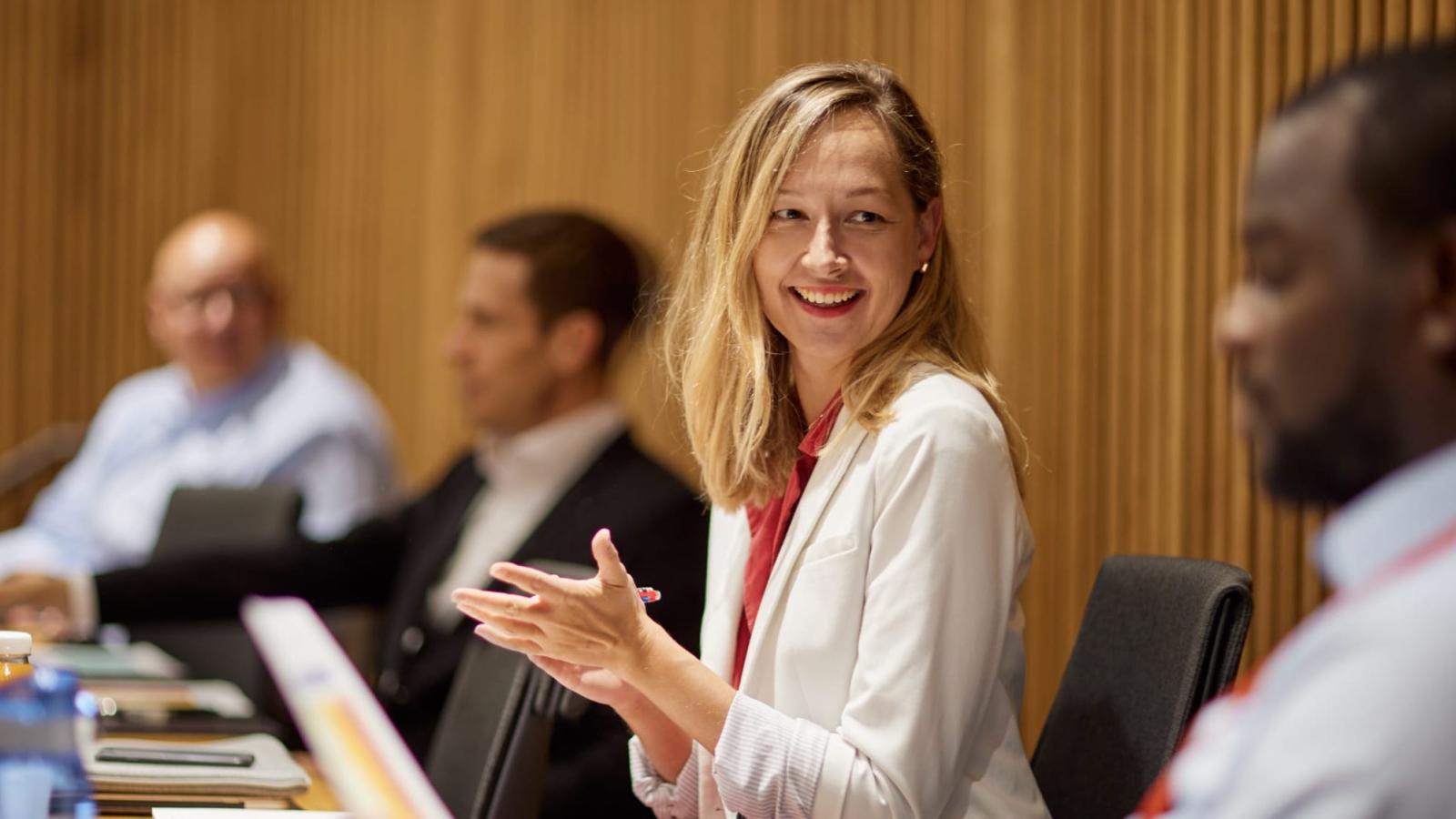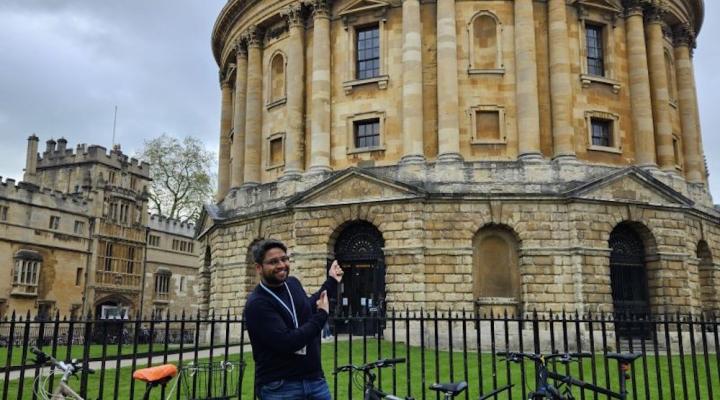Genuine student experience
For me, the Oxford experience feels like a genuine student experience. When I’m in Oxford for a module, days begin at dorm facilities of Keble College, one of most beautiful colleges of the University. Quite a few of us from the MSc cohort are Keblites, and having weekend brunches or formal dinners together in the impressive Dining Hall, which is one of top student experiences. For a deeper look into the history of the University, the programme team kindly organises at least one college visit per module.
While being in Oxford feels being immersed in history and tradition, one shouldn’t think Oxford is frozen in time, on the contrary! Classes in Saïd Business School are forward-thinking, bringing global perspectives in a modern atmosphere. This is the best that the University has to offer – critical thinking, building on most recent literature and case studies from leading business schools in the world.
So in a nutshell, the Oxford experience for me is both the history and the future!
How has the MSc in Major Programme Management helped you to practically face a challenge?
Tremendously, from Module 1 onwards! The programme covers both theories and management practices, so topics covered during classes can be immediately applied into everyday work. As we go through models and toolkits from academic research, as we discuss in class about our own student experiences, after each module I feel as I have a new set of glasses, new lens to look at the world.
For example, in one of the modules, we discussed about types of leadership, and the idea of adaptive leadership came with an image of being in a party. In essence, a leader needs to know when to get off the dancefloor and go to the balcony to get a better view. It’s a simple but powerful image, reminding me not to get too comfortable in a single perspective, but ask myself – what am I seeing, what am I missing? While office days rarely resemble a party, this was a great reminder to take time and effort to observe and to reflect, continuously shifting between the dancefloor and the balcony, and then intervene as needed. This simple 'party lens' has been a helpful reminder to look at situations from a different angle. Fresh perspectives give new solutions.
Why did you choose to study the Oxford MSc?
It seemed like a natural step following the professional experience developed throughout my career so far. The past 15 years, I have been working on major programmes and policies across Europe. From improving access to drinking water in Croatia, introducing circular economy in Greece, or supporting transition from coal in Polish regions, my constant motivation remained to facilitate positive change and improve people’s lives. Two years ago, I started working on a major recovery programme in Europe. In that context, specific design of MSc in Major Programme Management seemed like a good fit of theory and practice, to provide me with fresh insights to help to successfully implement this major programme, but also for my future career roles.
Also, one of the main benefits of the programme is that it is part-time, which means that I could combine it with my career, though would underline this programme is equally rewarding and demanding. It does require time and commitment to make the most of it.
Before applying, I did have some doubts whether the programme would be a good fit for me personally, with public sector experience. Speaking with the recruitment team was very helpful, as they offered more details on the structure of the programme and emphasized diverse profiles of participants.
Now, being in the programme, I can say it is a perfect fit. The programme is not only about big construction projects, even though we have several classmates who are doing impressive infrastructure work. The core of the programme is focused on different, complex, transformative major projects, across sectors, which are extremely complex due to the large number of stakeholders, technical constraints or political challenges. The cohort is indeed exquisite, truly diverse mix of project managers from different industries, across the globe - literally from Alaska to New Zealand! And finally, the faculty of Saïd Business School is top-notch to navigate us across these challenges.
Application advice
My only tip is – do apply! If you are reading this blog – you are already interested in this programme, don’t overthink it and just apply. The application process is simple and straightforward, and it takes less time to apply then fight internal doubts and insecurities.
In the application essays, be authentic and genuine. You may want to think of your past, your current challenges and also your future, explaining how MSc would contribute to your goals. Finally, don’t forget the overall application, do your homework and prepare well for the interviews – as enrolment in the programme is of course a prerequisite to be even considered for the scholarship.
How did it feel when you were offered the Women’s Scholarship?
When I found out I was awarded a scholarship, I think I was lost for words of the realisation of me being an Oxford student AND a woman's scholar, it felt like winning the lottery twice. So, it was really, really a dream come true. I felt extremely honoured and privileged to have been awarded the scholarship.
Even though the financial support is extremely important, the scholarship award gave me a strong confidence boost. The scholarship was an important decision point to join the programme as I'm self-funded, but the recognition from the School is really one of the most valuable things. It almost fuelled me after having all the doubts, that there was a whole committee and the School believing in me. And I’m happy to say now, as I am nearly finishing the programme, it seems that the School was right. Even in the first few days in the classroom, I would ask myself 'do I really fit here?' Yes, I do, it turned out that I do. It's fantastic!
For women considering this programme, however, there is more than the scholarship. Our cohort consists not only of women scholars, but a range of exceptional women managers, providing a strong network globally. As we realised we have many things in common, and we face similar challenges in the workplace and beyond, we spontaneously established a mini group of female leaders. During module time, we organise a weekly dinner, and have inspiring conversations, share experiences, receive and give advice. It’s a great reminder we are not alone.
What three words would you use to describe the programme?
Rethink, reinvent, repower. Those three words describe how you’ll think about major programmes after the MSc in Major Programme Management, but even more importantly, how you’ll think of yourself.






